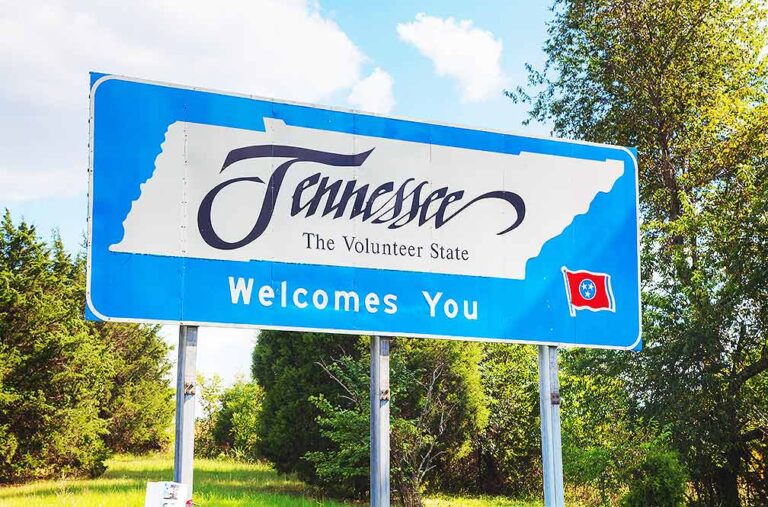NASHVILLE, Tenn. — Tennessee Gov. Bill Lee is considering allowing express toll lanes on highways and tripling a fee for electric car owners as he targets his first big push after winning reelection — paying for tens of billions of dollars in roadway projects.
The Republican is adamant about what he won’t do: Raise the gas tax; add fully tolled roads; or issue debt in lieu of the state’s pay-as-you-go road funding method.
Lee says the timing is crucial to pivot quickly to roads. With Tennessee’s rapid growth and truck traffic, state transportation officials say $26 billion in projects are needed to address worsening congestion, and only $3.6 billion of it is planned under a big swipe at roads by Lee’s predecessor. Officials also say projects are taking so long — 15 years on average — that they are coming in 40% over budget.
Like other states, Tennessee’s current road funding through gas taxes looks less reliable as more people switch to fuel-efficient and electric cars. Tennessee is also becoming a electric vehicle production hub, highlighted by a massive upcoming Ford electric vehicle project with a partner company’s battery factory.
Lee will need Republican lawmakers on board for much of what he wants. That includes opening up the possibility for private companies to bid to build new express lanes on highways and impose tolls for profit. Lawmakers would also need to approve raising the annual fee on owning an electric vehicle from $100 to $300.
Transportation commissioner Butch Eley has stated that any express toll lanes would be newly built, and would not turn existing carpool lanes into paid ones. Across the country, five states have express toll lanes, 10 states have carpool lanes that let others join at a price, and some have both, according to a February 2021 report by the Federal Highway Administration.
The state could control driver eligibility and the pricing policy, which can fall or rise based on current congestion, while charging only those who want the quicker ride. A private company would design, build, finance, operate and maintain the lanes.
“There’s nothing, I think, more fair than people paying for what they use,” Eley said.
The $300 electric vehicle fee could be the country’s most expensive. As of July, 31 states have a similar yearly fee, ranging from $50 in Colorado to $225 in Washington, according to the National Conference of State Legislatures. Eley says the increase better reflects what electric car drivers would be paying in federal and state gas taxes.
The Trucker News Staff produces engaging content for not only TheTrucker.com, but also The Trucker Newspaper, which has been serving the trucking industry for more than 30 years. With a focus on drivers, the Trucker News Staff aims to provide relevant, objective content pertaining to the trucking segment of the transportation industry. The Trucker News Staff is based in Little Rock, Arkansas.








